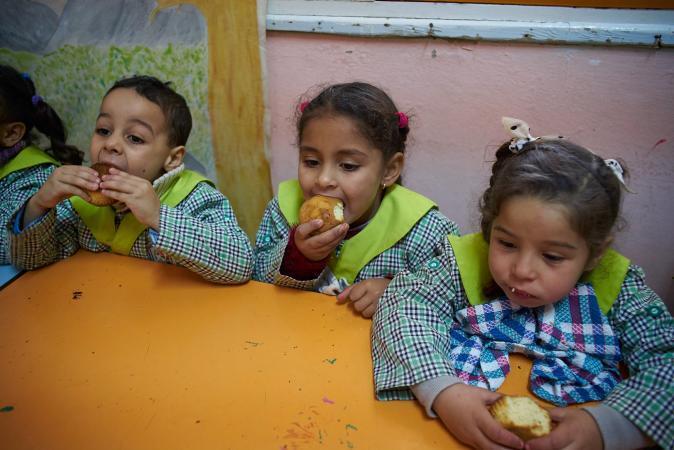
New ISO ESG Implementation Principles provide int’l guidance to streamline ESG practices
New ESG Implementation Principles launched the International Organization for Standardization (ISO) at the 29th United Nations ...

The Middle East and North Africa is the second region in the world for overweight children with about 5.4 million children in the regional suffering from overweight, up from 3.4 million in 2000, according to the UNICEF.
Despite some improvements including progress in addressing under-nutrition, overall trends in children’s nutrition have either begun to stagnate or have worsened since the year 2000 in the Middle East and North Africa.
Children in the region also suffer from ‘hidden hunger’ or micronutrient deficiencies from poor diets that threaten children’s survival, growth and brain development as well as overweight.
“Staple foods with low nutritious value, highly processed “junk” foods, sugary drinks, food fortification policies, labeling and marketing practices – are failing to provide healthy diets for children, in poor and wealthy countries alike. As a result, more children are not eating healthy and are either undernourished or overweight in a number of countries in the region” added Chaiban.
Improving children’s nutrition requires food systems to deliver safe, nutritious, affordable and sustainable diets for all children. Children’s nutrition in the Middle East and North Africa region will only improve through the concerted efforts of governments, the private sectors, donors, parents and key sectors including health, education, water, sanitation and hygiene and social protection.
Nearly 11 million children suffer from chronic or acute malnutrition, including over 7 million stunted children and 3.7 million acutely malnourished children.
Children suffering from acute malnutrition are 11 times more likely to die without treatment than their well-nourished peers.
The impact of conflict is dire. More children now suffer from different forms of malnutrition since the start of conflicts in Syria, Yemen, Libya, and Sudan.
Nearly one third of all pregnant and nursing mothers in northwest Syria are anemic, with serious consequences for giving birth and on their children’s physical and mental development.
In Sudan, rising food prices are leading to poor nutrition among children. An estimated 2.3 million children suffer from malnutrition in the country and half of all deaths of children under five years-old are directly related to malnutrition.
In Yemen, an estimated 2 million children are acutely malnourished, including nearly 360,000 children under five years-old suffering from severe acute malnutrition, fighting to survive.
“Children from the poorest and most marginalized communities account for the largest share of all children suffering from malnutrition,” said Ted Chaiban, UNICEF Regional Director for the Middle East and North Africa. “This perpetuates poverty across generations. Children who are hungry are unable to concentrate in school or learn and those who are stunted have lower earning potential as adults because of developmental deficiencies.”
The right to nutritious food is in the Convention of the Rights of the Child. As the world marks the 30th anniversary of the Convention, UNICEF called for placing child nutrition at the heart of government-supported campaigns for governments and the private sector to provide healthy foods for children.
UNICEF also called for incentivizing food suppliers to produce and distribute nutritious and healthy foods for children.
UNICEF also urged to enforce strict minimum food quality standards, improve labeling and restrict marketing of sugary snacks and ‘junk food’ with low nutritious value.
It also called for providing support for working mothers and families, including paid parental leave, and dedicated time and facilities for breastfeeding in the workplace.
It also urged using social protection; water, sanitation and hygiene, education and health systems to promote better nutrition for children. This includes healthy foods in school canteens, banning the sale of high salt, sugar and fat foods, providing nutrition education to students, teachers and families, access to safe water and hygienic practices in food preparation and preventive and treatment services for nutrition in health systems.
It also called for collecting better data through expanded collection methods on children to come up with better policies for children.
New ESG Implementation Principles launched the International Organization for Standardization (ISO) at the 29th United Nations ...
PUMA has already made strong progress in reducing its greenhouse gas emission over the past ...
The United Nations Trade and Development (UNCTAD) urged during the 29th United Nations Climate Change ...


اترك تعليقا